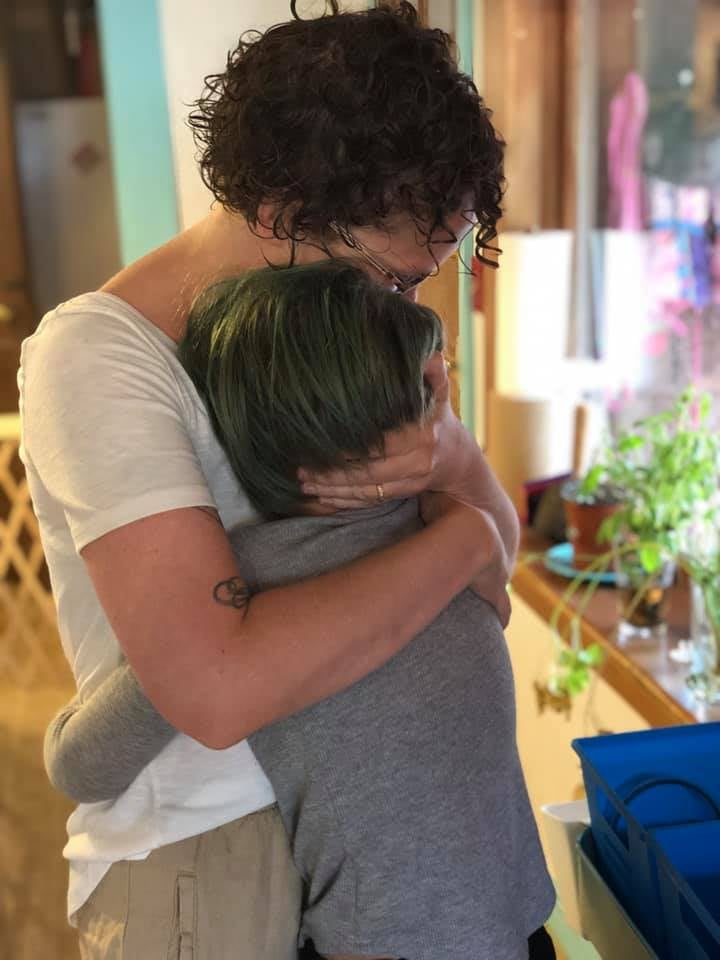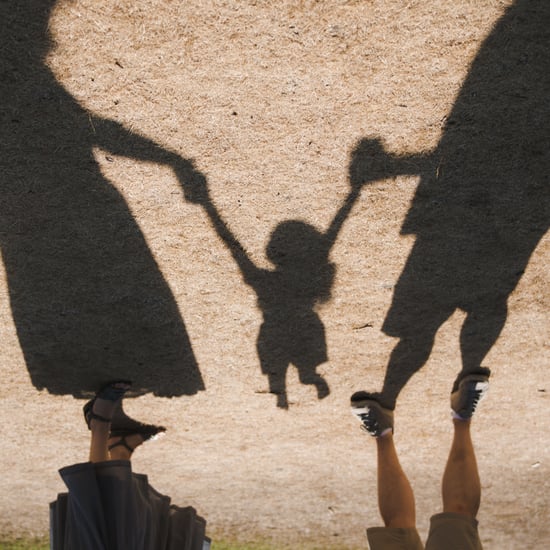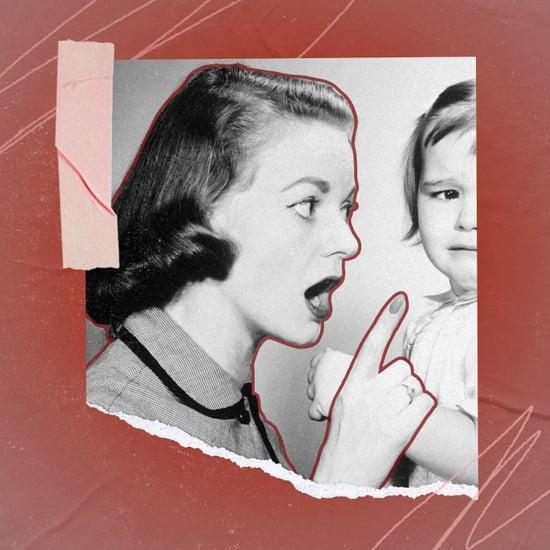Mum's Post on Why Behaviour Is Communication
1 Mum's Advice on How to Support Kids in Distress Is Absolute Parenting Gold

Jessica Martin-Weber, a mum and blogger, knows that it can be hard for kids to express what they're thinking. And while it can be frustrating to endure your little ones' bad moods, Jessica explained in a Facebook post that having patience with them is always a better option than resorting to anger because, after all, behaviour is a communication.
"When our children 'act out' or 'misbehave' or are 'being difficult' or are 'moody' or 'rebellious' or 'defiant' or whatever you want to call it, it really is them processing something they lack the skills to handle and talk about, or unsure how to express, or do not feel safe to explain," she wrote. "Adults do this too but our society has less tolerance for it from children. What tends to happen is we shame the child, ignore them, berate them, lecture them, and punish them. All of which create even more barriers for them to communicate. Behaviour IS communication."
She recently experienced how important behavioural communication is when her 9-year-old daughter, Cosette, was helping her get ready to have company over. After unloading the dishwasher and chatting with her mom while she cooked dinner, Cosette was all smiles. However, that happiness shifted quickly.
"Within an hour she was obviously unhappy," Jessica wrote. "Still being helpful, even mopping the floor a second time when I pointed out some missed spots, she had grown quiet and snippy towards everyone. I wondered what was up. There had been a bit of conflict between her and an older sister about something but they had resolved it well and moved on. I assumed it was still bugging her. An hour and a half into things, just before our guests arrived, there had been mini-conflicts between Cosette and everyone else. She was explosive and mean. Even her footsteps made everyone give her a wide berth. I asked her if she knew why she was grumpy, she snapped that she wasn't grumpy. Realising my mistake I apologised for telling her what she felt instead of asking her what she felt. Requesting a do-over, I asked her if she wanted to talk about anything. She growled that it was nothing. I gently reminded her that I wouldn't let her treat anyone meanly and she needed to be sure she was communicating with love and respect. She skulked off."
Rather than yell at or punish her daughter, Jessica took a positive approach.
"For the next 10 minutes, I told Cosette any time I saw her that I love her and that she could tell me anything. Every time she told me she was fine. Which is definitely code for 'I'm not fine but don't know what I want to do with it yet,'" she said. "Tension and angst radiated from her, every family member had asked what was wrong. It was going to be hard to miss the negative vibe."
"I gently reminded her that I wouldn't let her treat anyone meanly and she needed to be sure she was communicating with love and respect. She skulked off."
Eventually, Jessica passed her daughter again and simply asked if she wanted a hug, and that's when the emotions came rushing in. "Almost reluctantly, she said 'OK' and moved closer. I wrapped my arms around her, kissed her head, and told her I love her," she wrote. "Her arms tightened around me. I decided to go on, telling her she is special and important to me and I care about her feelings. 'Nothing will make me stop loving you,' I told her, and 'the world is a better place with you in it.' She buried her face in me and I reminded her once again that she could tell me anything and because she is important to me I want to know how she is feeling and what is the matter when something was bothering her."
Finally, Jessica's daughter opened up about what was bothering her. She wrote:
She was jealous that her sisters had friends they got to see and have play dates with and she doesn't. That our friends coming today have kids that are friends of her sisters' but not really her friends. That she was upset because her friends never seem to have time for her and can never get together. Then the sobs. It wasn't what I thought it was but it wasn't a surprise.
My heart ached for her. Still does. I hate this for her, friendship struggles are so difficult. She is friendly and pretty outgoing but fiercely loyal, she doesn't get very close to many. She can play with anyone she meets at the park or pool without issue but she deeply values close friendship with just one or two people. In the moment as I held I her, I decided not to offer any solutions. I wasn't sure I had any anyway. What I could do was care about how she was feeling, validate her pain, hold space for her to process, and support her in working through it. This wasn't mine to fix, it was mine to support.
After a few minutes of hugging, Jessica greeted her guests and joked with her daughter, happy that she was able to support her. "We had laughed over how tight she was squeezing me and I would appreciate still being able to breathe when we hug," she said. "She had gone off to get some space, rejoining the group shortly in a much better place, full of smiles, jokes, and interesting stories. Her behaviour was frustrating but none of it was ever about her behaviour. It was always about her pain. Because behaviour is communication."






